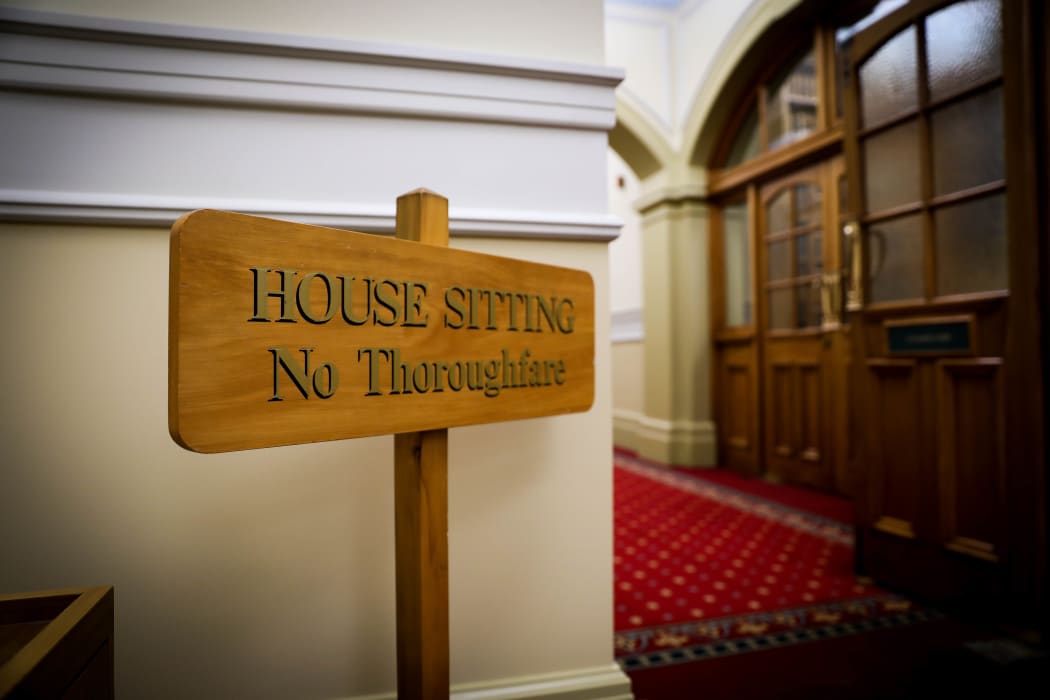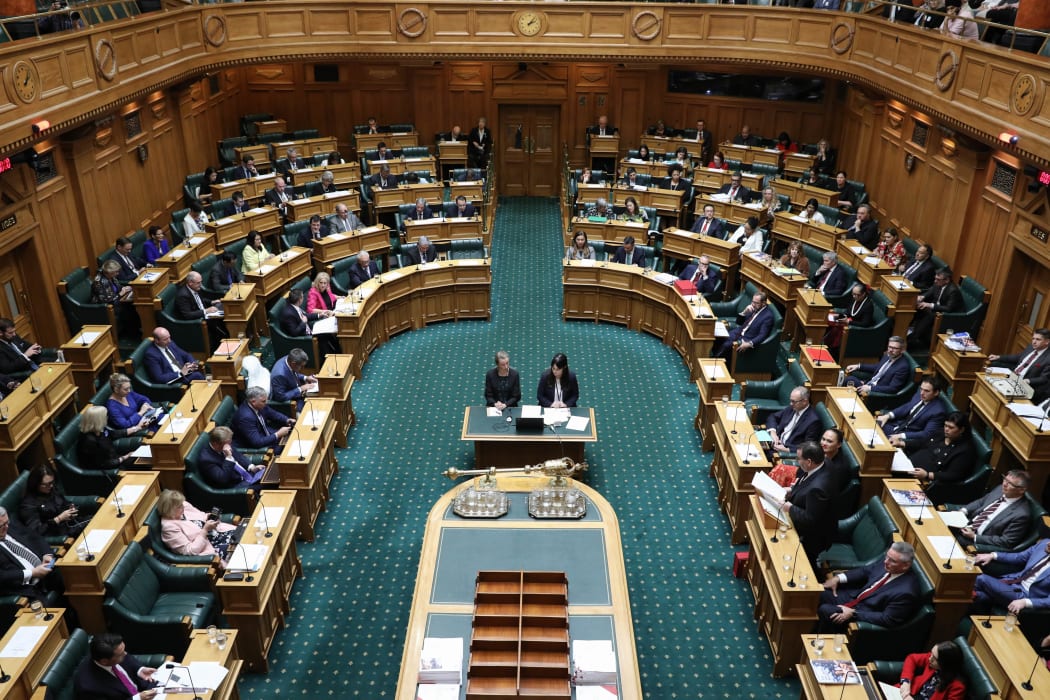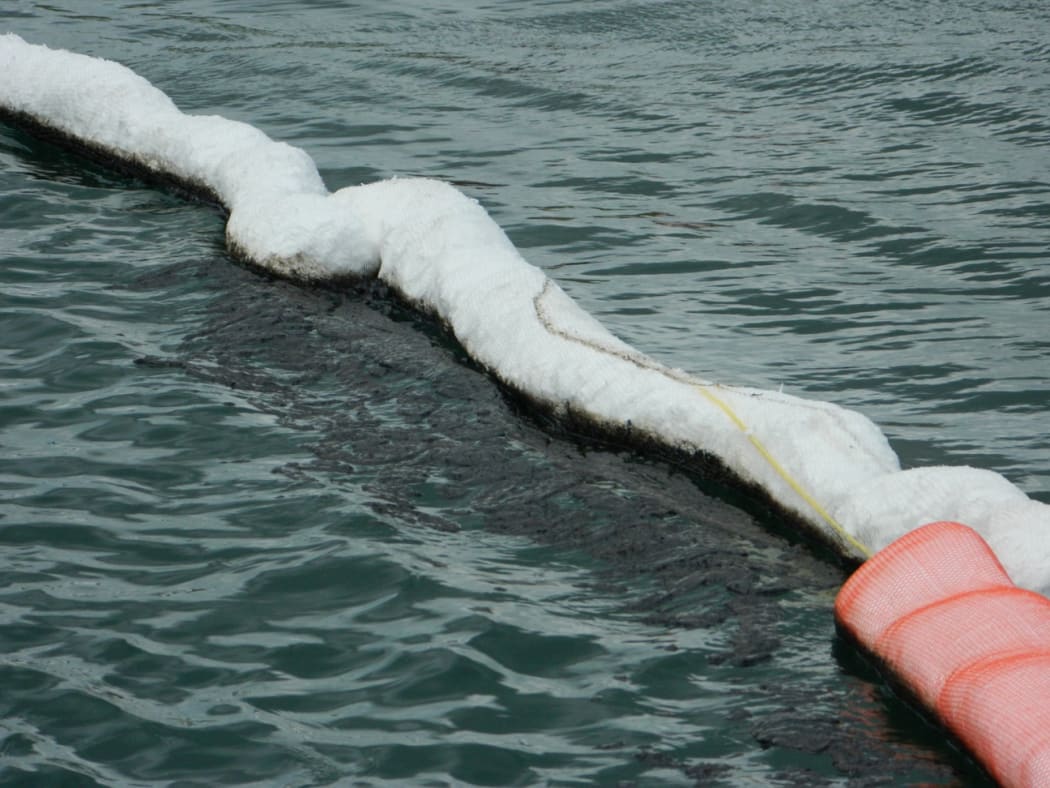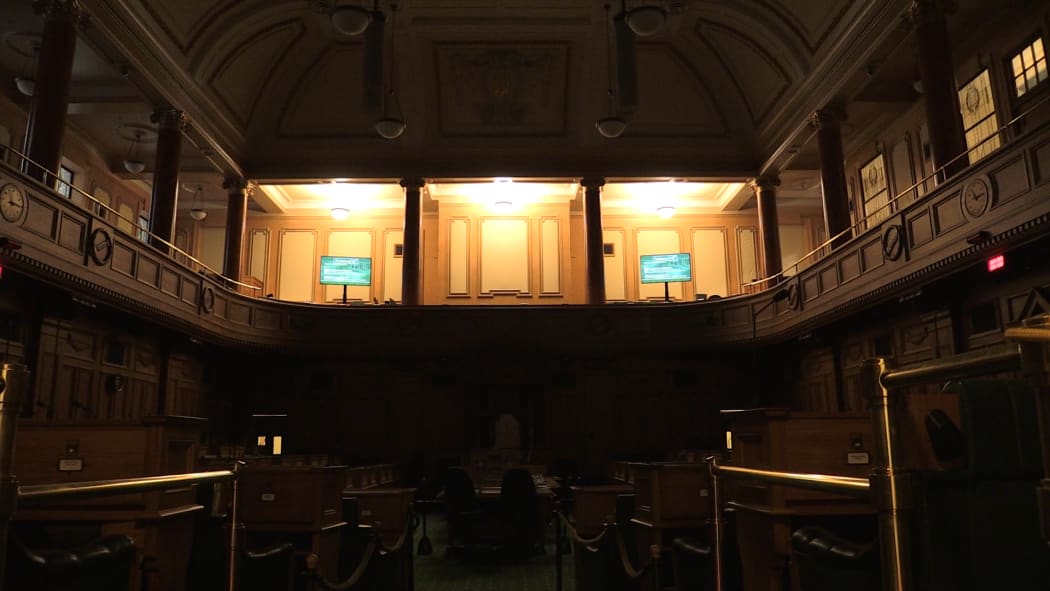The final week in a three-week sitting block begins today.
MPs are required at Parliament for sitting days which are scheduled in a calendar. Mornings are usually taken up with caucus or meetings but from 2pm MPs are in the debating chamber.
Here’s what they’ll try to work through today.

Photo: VNP / Daniela Maoate-Cox
Question Time - 2pm
Usually lasting about an hour Question Time consists of 12 oral questions to Ministers which are lodged in the morning.
Opposition questions will try to show the Government’s failings while questions from MPs in Government parties are usually softer so a Minister can boast a bit.
Supplementary questions (follow-ups) are usual but at the mercy of the Speaker who can award or remove them as they like.
End of the beginning for the Budget - second reading cont’d

Finance Minister Grant Robertson delivers his Budget Statement to the House on May 30 Photo: VNP / Phil Smith
What:
-
Appropriation (2019/20 Estimates) Bill a.k.a the Budget Debate
-
The seemingly never-ending 15-hour debate on the Budget continues with 1 hour 34 minutes remaining. That’ll end about 4:30pm.
-
This debate follows on from the Finance Minister's budget announcement on May 30.
Why:
-
Approving a government’s spending is one of the core functions of the Parliament.
-
The budget is the underpinning of a government’s plans so there is much to discuss.
Who:
-
The Appropriations Bill is in the name of the Minister of Finance Grant Robertson
All in favour?
-
Nope. The Opposition will vote against it because this is one of the few annual automatic no-confidence measures. The opposition proposed an amended motion for debate that argues the House has no confidence in the Government. But the Government parties have a majority in the House so it’s unlikely to fail.
And now for last year’s money - second & third reading

Photo: 123RF
What:
-
This bill approves what was actually spent in the financial year just ending (rather than what was intended).
-
Money bills are always a bit different. After second reading this one will immediately have a third reading without debate (and no committee stage). Because this is more a financial report than legislation and amendments aren’t possible.
-
Also, an Imprest Supply Bill will get tagged on to this. Imprest Supply is literally money supply. It’s approval to get the cash.
No more smoking in cars with children - first reading cont’d

Photo: 123rf
What:
-
The Smoke-free Environments (Prohibiting Smoking in Motor Vehicles Carrying Children) Amendment Bill
-
The bill will prohibit smoking in motor vehicles carrying children and young people under 18 years of age.
-
A first reading debate is 12 speeches of up to 10 minutes in length. Usually the sponsor of the bill will go first outlining what the bill will do and why it’s needed. Other MPs will either declare their initial support or indicate areas they want to work on at the next stage (select committee). This debate stage has 8 speeches remaining.
Who:
-
Jenny Salesa is in charge of this bill. She is Associate Minister of Health and Minister for Ethnic Communities.
Why:
-
To protect children from the harm associated with second-hand smoke.
-
The Bill also supports New Zealand’s responsibilities to protect children’s health and wellbeing under the United Nations Convention on the Rights of the Child.
-
The explanatory note in the bill says “Māori children and those living in the most deprived areas are more likely to be exposed to second-hand smoke in vehicles”. While rates of children and young people’s exposure to second-hand smoke have been decreasing, the rate of decrease may be slowing
Paying for oil spills - first reading

Oil on the water contained by specialised booms. Photo: Supplied
What:
-
The Maritime Transport (Offshore Installations) Amendment Bill
-
This bill is about clarifying who is liable for the clean-up and compensation needed after an oil spill.
-
The Maritime Transport Act 1994 has a “polluter-pays regime” which means owners have unlimited liability for the cost of pollution damage from a spill. The Bill clarifies liability of insurers to the Crown and other third parties affected by pollution.
-
First reading debates are normally used to outline a bill’s purpose and show initial support or opposition. Generally the debate is 12 speeches of up to 10 minutes in length.
Who:
-
Associate Minister for Transport Julie Anne Genter is in charge of this bill.
All in favour?
-
Hard to accurately say before a first reading as this is the bill’s first time up in the House but it’s a Government bill so it’s unlikely it will fail.
House adjourns - 10pm
The House sits from 2pm on scheduled sitting days with a dinner break at 6pm until 7:30pm on Tuesdays and Wednesdays. It then resumes sitting until 10pm.
You can see how much the House gets done each sitting day by going here: Daily progress in the House

Photo: New Zealand Parliament


